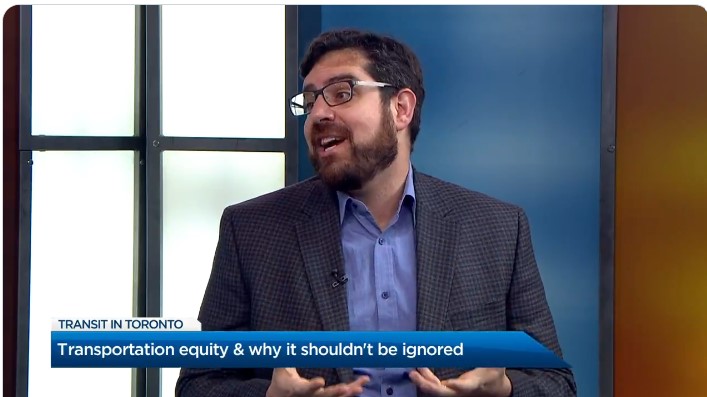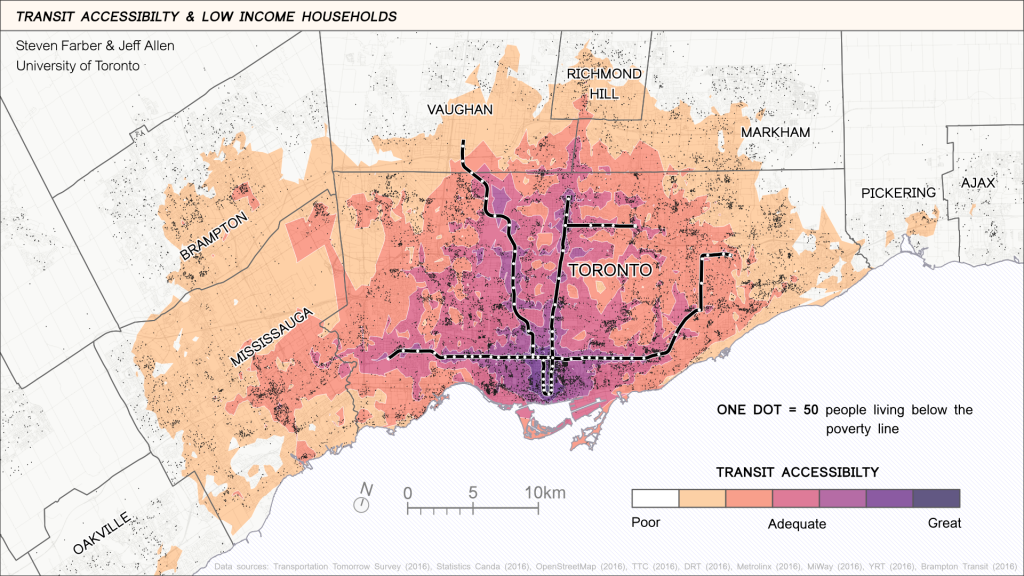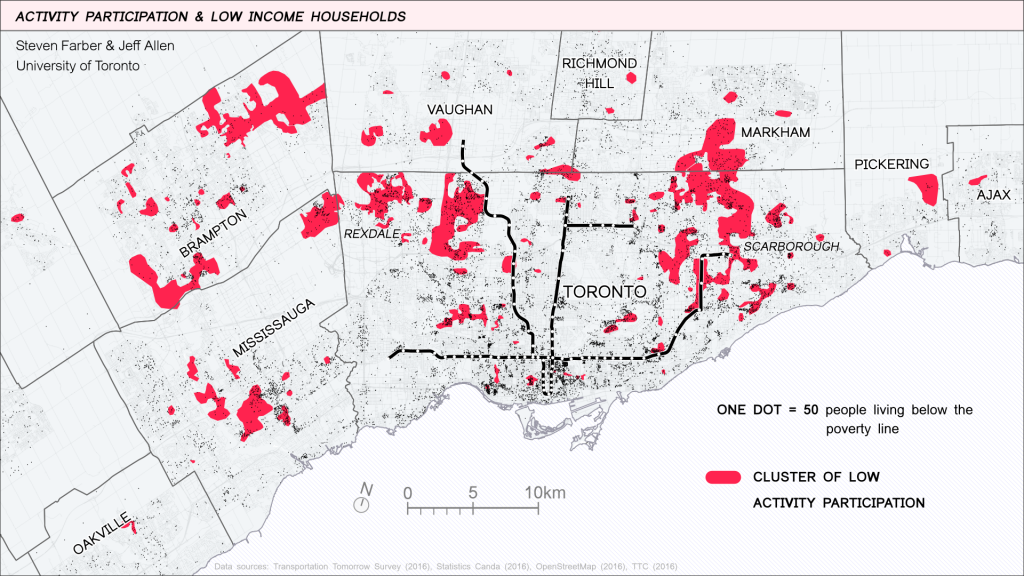
UTTRI associated faculty Professor Steven Farber was interviewed about transportation poverty in the GTA by Antony Robart for Global News Morning November 20, 2019.
In the four-minute interview, Farber explained the terms ‘transportation poverty’ and ‘transportation equity,’ why he views transportation as a social justice issue, and how GTA inequities can be corrected and possibly avoided in the future.


Quotes from Professor Farber’s interview:
Transportation equity is concerned with the fairness of the transportation system. We’re interested in understanding who’s benefitting and who’s paying extra costs in order to use the transportation system, or access the transportation system. One of the things that we’re finding in our research is that there’s this large number of low-income families living away from the downtown core, where there’s a lot of destinations to reach, and away from those vital transportation lines that can bring people to activity centres quickly.
Our research shows that the issue of ‘transport poverty’ is a real problem in the GTA for example, where we do have a lot of people living away – a lot of low-income families – living far away from subway lines and rapid transit lines.
The trend over the last decade or so, largely because of the unaffordability of housing in our city, is that low-income families, recent immigrants, are locating our in our suburbs. Places that really require a car to get around. But a lot of those families don’t have as many cars per person, say, as the average family in the city, and that means that they’re really stuck. Not participating in as many activities every day as the rest of us. And that could have a really long-term negative impact on well-being, finding a job, getting to school. All of the things that people need in order to improve their station in life.
… We really need to work with our land-use planners and our housing policy people in order to come up with solutions that can keep neighbourhoods affordable for low-income families, even after we’ve built transit into those neighbourhoods in order to improve the lives of people there.
View the interview clip “Transportation equity and why it shouldn’t be ignored” online.
The interview was also shared on Twitter:
Transport Poverty? Affordable Housing? Participation Deserts? Catch them all in this @globalnewsto interview. It was a pleasure discussing these important issues with @AntonyRobart this morning. Check out the clip! @utsc @UofTTRI @geo_uoft @UofTCities @mobilizingjust1 https://t.co/RMpSAtrchK
— Steven Farber (@FarberSteven) November 20, 2019
Related content
- Mobilizing Justice – A workshop held November 7-8, 2019
- Farber, Allen study Ontario Line for Metrolinx with links to research papers
- Stranded without transit? U of T researchers say one million urban Canadians suffer from ‘transport poverty’
